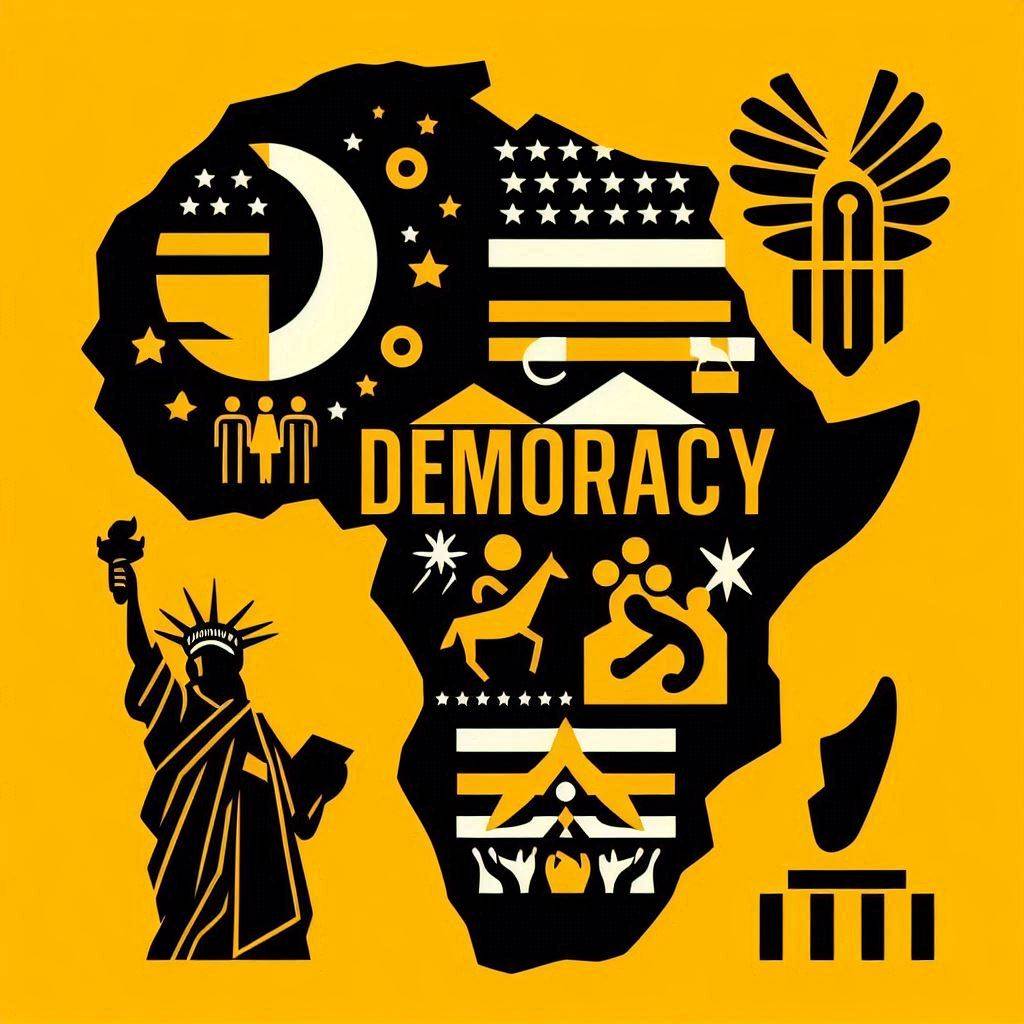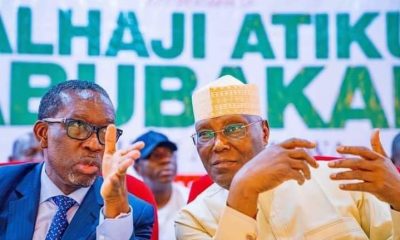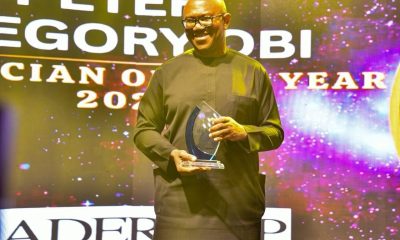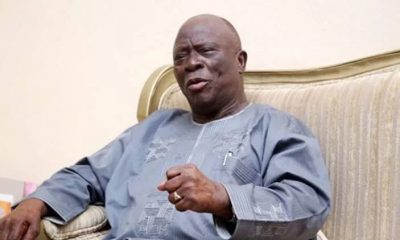OPINION
Urging African Countries To Eschew American-Style Democracy And Embrace Home-Grown Options

BY ISAAC ASABOR
In an unexpected turn of events, two married couples set out for counselling at their pastor’s house, hoping to find answers for their troubled marriages. However, when they arrived, they were met with an unexpected scene: the pastor and his spouse were having a heated argument in their own home. Shocked and disheartened, the couple exchanged glances and silently agreed to leave. As they walked away, they realised that the answers to their marital problems might lie within themselves, and they resolved to work together to mend their relationships without external intervention. Lesson: Sometimes the most profound solutions emerge unexpectedly.
In light of the preceding anecdote, there is no denying that it is a magnum opus that has to a large extent expressed the compelling need for African countries to conceptualise a home-grown democracy, just as the much-discussed Greece-grown democracy adopted by America has become a Greek gift. To clarify, a Greek gift is “a gift given to cause harm to the recipient.”
The reason for the foregoing view is not farfetched, as democracy in America, which once had a rich history of being idealistic, has now become a source of contention in America, with some praising its principles and others criticising its implementation. For example, issues like voter turnout, polarisation, and the influence of money in politics continue to shape the democratic landscape.
On January 6, 2021, officers from the United States Capitol Police faced a violent mob intent on disrupting the peaceful transfer of presidential power. They were motivated by white supremacist rhetoric and deliberate misinformation aimed at overturning an election’s legitimate results.
In the same year, the Lawyers’ Committee for Civil Rights Under Law filed a lawsuit on behalf of eight United States Capitol Police officers who defended the ballot certification process on that fateful day. The lawsuit names former President Donald J. Trump, Stop the Steal, the Proud Boys, the Oath Keepers, and other organisations as defendants, as well as individual members of far-right extremist and political organisations. The lawsuit was decided by a federal court in Washington, DC.
In a similar vein, following the recent attempted assassination of former President and Republican presidential candidate Donald Trump, Freedom House’s interim president, Nicole Bibbins Sedaca, released the following statement:
“Yesterday’s assassination attempt on former President Donald Trump was a dark and shocking blow to the American democratic process. While we are relieved that former President Trump was not seriously injured, we are saddened by the loss of life and the fear felt by everyone who attended the political rally.
“The purpose of a democracy is to provide citizens with a peaceful means of navigating differences and resolving disagreements through open debate, free and fair elections, and the rule of law.” Political violence is completely unacceptable in any context, and all Americans should strongly condemn this assassination attempt.
“The vast majority of Americans regard democratic values as sacred and rightfully take pride in them as an essential component of their national identity. However, it cannot be denied that politicians, election officials, and others have faced a concerning increase in politicised threats and violence in recent years.”
To be clear, “Freedom House is a non-profit organisation based in Washington, D.C.” It is best known for its political activism on issues of democracy, political freedom, and human rights.”
Given the somewhat undemocratic state of American democracy today, it is appropriate to argue that the time has come for African leaders to look inward and create a representative government that is not modelled after American democracy. This is critical because America, which they always look up to, is reputed to be a regular organiser of “Summits for Democracy,” to which many African leaders are usually invited to attend and be lectured on the tenets and ideals of democracy, but it is not setting a good example of what an ideal democracy entails.
Like the anecdote about the two married couples mentioned at the beginning of this piece, who set out for counselling at their pastor’s house only to discover that the pastor lacks the necessary skills to counsel them on how to resolve their matrimonial woes, many democrats around the world, including Nigeria, are wondering if the brand of democracy practised in America is worth emulating by African countries.
Many Nigerians believe that many African countries will remain in crisis unless they develop a government that respects their people’s culture and values. According to them, America is not in a position to teach Africans how to govern their countries.
In light of the foregoing, it is not an exaggeration to say that the problem with American democracy, which is also troubling some African countries that modelled their democracies after their presidential system of government, is primarily money and identity politics, as evidenced by Nigeria’s democracy. Without sounding exaggerated, anyone who aspires to seek political office in Nigeria, whether through an electoral window or by appointment, must be a moneybag to secure the position he or she seeks, even if such a person is associated with godfathers or cabals.
Without a doubt, especially in recent years, the debate over whether American-style democracy is appropriate for African countries has gained traction. While democratic governance is still essential, there are compelling reasons for African countries to investigate homegrown democratic models tailored to Africa’s specific context.
First and foremost, rather than replicating the American democratic model, African countries should create democratic solutions that are consistent with their cultural values. This is because tailored approaches can more effectively address local norms, traditions, and historical legacies.
In a similar vein, given Africa’s extraordinary diversity, with numerous ethnic groups coexisting within national borders, there is no doubt that homegrown democracy can accommodate this diversity by promoting inclusivity and representation for all ethnic backgrounds.
Furthermore, because African countries face unique socioeconomic challenges such as poverty, inequality, and underdevelopment, domestic democratic systems can prioritise policies that address these pressing concerns.
When viewed in a historical context, and given Africa’s history of colonisation, exploitation, and struggles for independence, a homegrown democracy can acknowledge the past and work towards healing, reconciliation, and empowerment.
Without a doubt, a democracy that empowers people must be built from the inside. African countries should thus actively participate in shaping their democratic institutions rather than relying solely on imported ones.
Finally, embracing homegrown democracy provides a promising path to sustainable development, good governance, and a brighter future for Africa. Let us acknowledge that democracy when grounded in local realities, can be a powerful force for positive change.
-
CRIME3 years ago
PSC Dismisses DCP Abba Kyari, To Be Prosecuted Over Alleged $1.1m Fraud
-
FEATURED3 years ago
2022 Will Brighten Possibility Of Osinbajo Presidency, Says TPP
-
FEATURED2 years ago
Buhari’s Ministers, CEOs Should Be Held Accountable Along With Emefiele, Says Timi Frank
-
BUSINESS & ECONOMY2 years ago
Oyedemi Reigns As 2023’s Real Estate Humanitarian Of The Year
-
SPORTS1 year ago
BREAKING: Jürgen Klopp Quits Liverpool As Manager At End Of Season
-
SPORTS2 years ago
Could Liverpool Afford Kylian Mbappe For €200 million? Wages, Transfer Fee
-
ENTERTAINMENT2 years ago
Veteran Nigerian Musician, Basil Akalonu Dies At 72
-
FEATURED2 years ago
Tribunal Judgement: Peter Obi Warns Of Vanishing Electoral Jurisprudence, Heads To Supreme Court
-
BUSINESS & ECONOMY2 years ago
Oyedemi Bags ‘Next Bulls Award’ As BusinessDay Celebrates Top 25 CEOs/ Business Leaders
-
FEATURED3 years ago
2023 Presidency: South East PDP Aspirants Unite, Demand Party Ticket For Zone



































